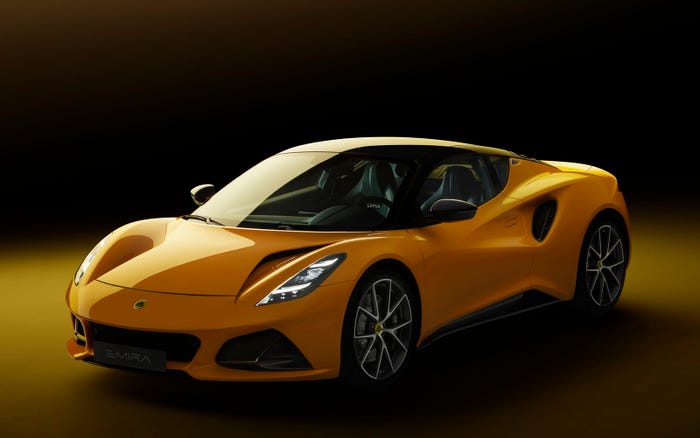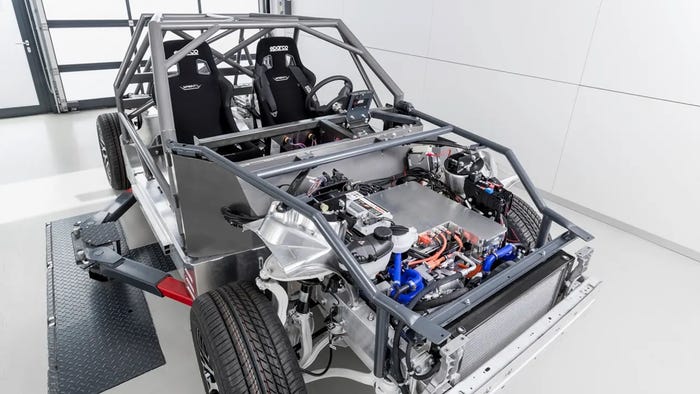Lotus Reports Positive 2016-2017 Pretax Earnings
The Norfolk, U.K.-based sports car maker says it improved quality, reduced costs and increased margins, resulting in the best sustainable performance by the business in many years.

Sports-car maker Lotus finishes the 2016-2017 fiscal year with positive earnings before interest, tax, depreciation and amortization of £2 million ($2.6 million), a major turnaround from a prior-year loss of £16.3 million ($21.2 million).
Profit before tax improved from a £41.2 million ($53.5 million) loss in fiscal 2015-2016 to an £11.2 million ($14.5 million) loss this time around.
Lotus had a profit-before-tax improvement of £10 million ($13 million) in fiscal 2016-2017 compared to the first six months. Lotus says this will allow it to concentrate on the next stage of development – a return to full-year profit before tax in fiscal 2017-2018.
The Norfolk, U.K.-based company says it improved quality, reduced costs and increased margins, resulting in the best sustainable performance by the business in many years.
Lotus CEO Jean-Marc Gales says the key has been the successful introduction of a completely revised product portfolio, with new benchmark sports cars within the Evora, Exige and Elise model ranges together with the new Lotus 3-Eleven.
“Lotus now is producing its strongest-ever lineup of cars, and the results pave the way for future investment and the development of new models” Gales says in a statement.
The company has launched products in new markets, including the U.S., and opened dealerships across the globe, increasing from 138 sales points in 2014 to 2015.
“This is a proud moment for Lotus,” Gales says. “Our vastly improved profitability, together with an increase in revenue means that for the first time in many years Lotus is now a self-sufficient and sustainable business.
“We have emerged from the last three years a fitter and more effective business, where we are fast in bringing new sports cars to market and agile in adapting to new opportunities,” he says. “We are now in a perfect position to develop the next generation of Lotus sports cars.”
Gales says the recent acquisition of a majority stake in Lotus by Chinese automaker Geely provides an environment in which the company can flourish with the development of new vehicles and technologies, as well as growing sales internationally.
About the Author
You May Also Like



